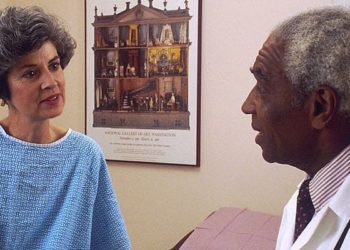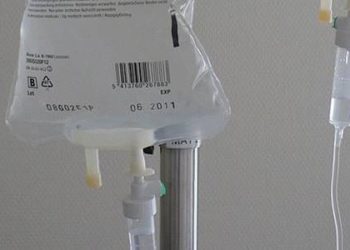Digital cognitive behavioural therapy may augment therapies for insomnia
1. For patients with insomnia, digital cognitive behavioural therapy (dCBT-I) and combination of dCBT-I and sleep medication were associated with higher response rates and greater improvements in sleep quality compared to medication alone, at 6 months follow-up.
Evidence Rating Level: 2 (Good)
Study Rundown: Digital cognitive behavioural therapy for insomnia (dCBT-I) refers to the delivery of CBT-I content through cellular apps or the Internet. dCBT-I has demonstrated effectiveness in improving sleep quality and reducing insomnia severity. dCBT-I has also been recommended by health governing bodies as an alternative to sleep medication, to avoid pharmacologic over-reliance. However, there are few studies comparing outcomes for dCBT-I, medication, and the combination of both. Therefore, this retrospective cohort study based in China measured and compared the effectiveness of these treatments over a 6-month follow-up period. The study population was taken from patients signing up to use the Good Sleep 365 app, which delivers dCBT-I, includes medication records and sleep diaries, and prompts patients to complete validated assessment scales for sleep, mood, and anxiety. The treatment modalities were prescribed by physicians, though there was no cited guideline or algorithm that informed physicians to prescribe certain modalities for patients over others. Overall, this study found that dCBT-I and combination therapy were associated with higher response rates than with medication alone, although the durability of outcomes for dCBT-I were more labile after the first 3 months. The findings from this study has significant implications for illustrating optimal treatment modalities for insomnia, and also demonstrates effective outcomes from incorporating technology into the delivery of psychotherapy.
Click here to read the study in JAMA Network Open
Relevant Reading: Efficacy of internet-delivered cognitive-behavioral therapy for insomnia – A systematic review and meta-analysis of randomized controlled trials
In-Depth [retrospective cohort]: The study population included 4052 adult patients who enrolled in the Good Sleep 365 app between 2018 and 2022, with insomnia as the chief complaint. Patients with mild insomnia or somnolence were excluded, with patients requiring a Pittsburgh Sleep Quality Index (PSQI) of 5 or greater, and an Epworth Sleepiness Score (ESS) of 10 or less. The primary outcomes were change in PSQI and ESS scores, as well as the response rate to the intervention, defined as a 3 point or greater change in PSQI score. Outcomes were assessed at 1, 3, and 6 months after a baseline outpatient visit. The results demonstrated response rates for dCBT-I of 77.30%, 81.97%, and 76.19% at 1, 3, and 6 months respectively; response rates for medication alone of 55.45%, 55.45%, and 54.08%; and response rates for combination therapy of 67.40%, 74.34%, and 76.31%. In comparison of effect sizes, there were significant reductions in PSQI in the dCBT-I group compared to medication alone at 1 month (Cohen d -0.26, 95% CI -0.38 to -0.14, p = 0.005), 3 months (Cohen d -0.57, 95% CI -0.68 to -0.45, p < 0.001), and 6 months (Cohen d -0.50, 95% CI -0.62 to -0.38, p < 0.001). There were also significant reductions in PSQI for combination therapy compared to medication alone, at 1 month (Cohen d 0.26, 95% CI 0.19-0.34, p < 0.001), 3 months (Cohen d 0.52, 95% CI 0.45-0.6, p < 0.001), and 6 months (Cohen d 0.5, 95% CI 0.42-0.58, p < 0.001). In terms of durability, the study found that dCBT-I outcomes improved quickly and consistently over the first 3 months before becoming more labile, whereas combination therapy patients steadily improved over 6 months and achieved sustainable outcomes. Overall, this study demonstrated the effectiveness of dCBT-I and combination therapy for reducing the severity of insomnia symptoms over a 6-month period.
Image: PD
©2023 2 Minute Medicine, Inc. All rights reserved. No works may be reproduced without expressed written consent from 2 Minute Medicine, Inc. Inquire about licensing here. No article should be construed as medical advice and is not intended as such by the authors or by 2 Minute Medicine, Inc.









